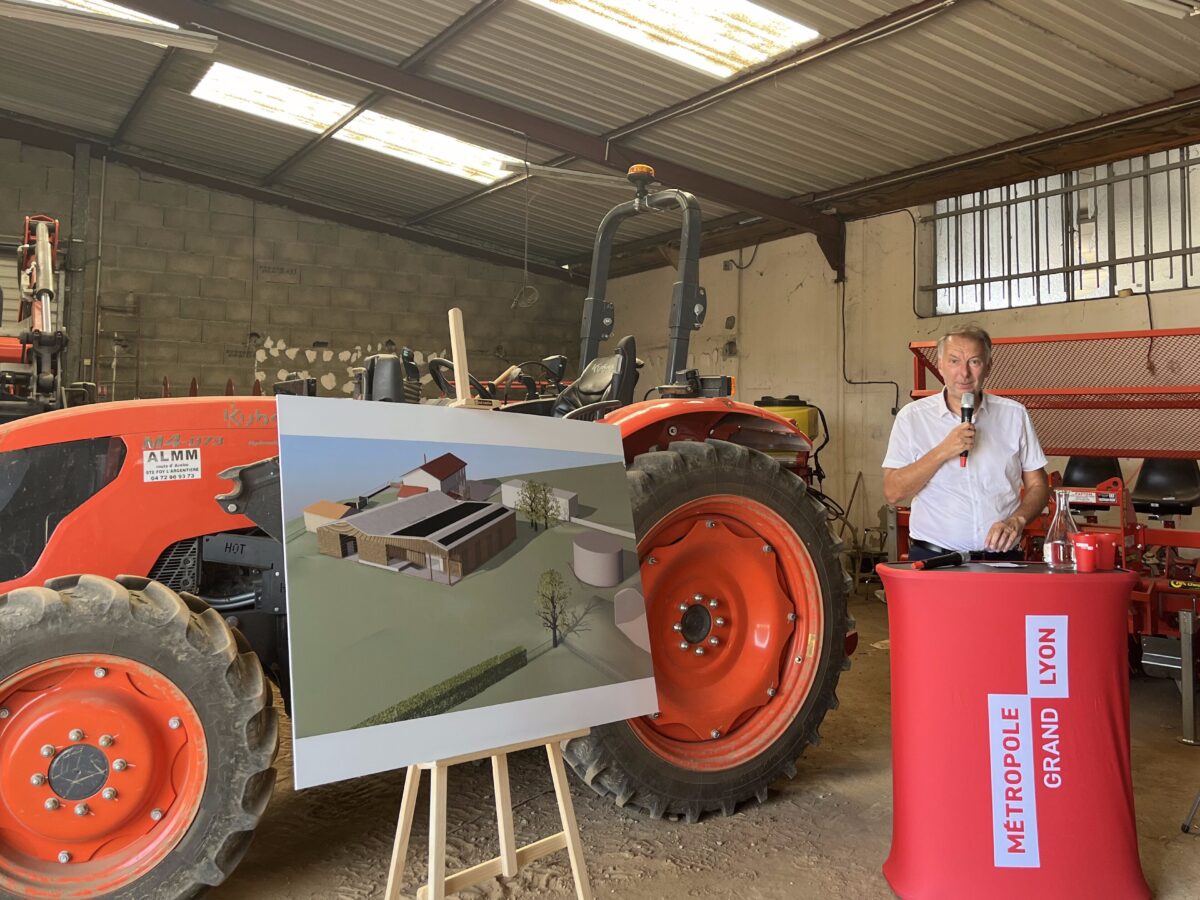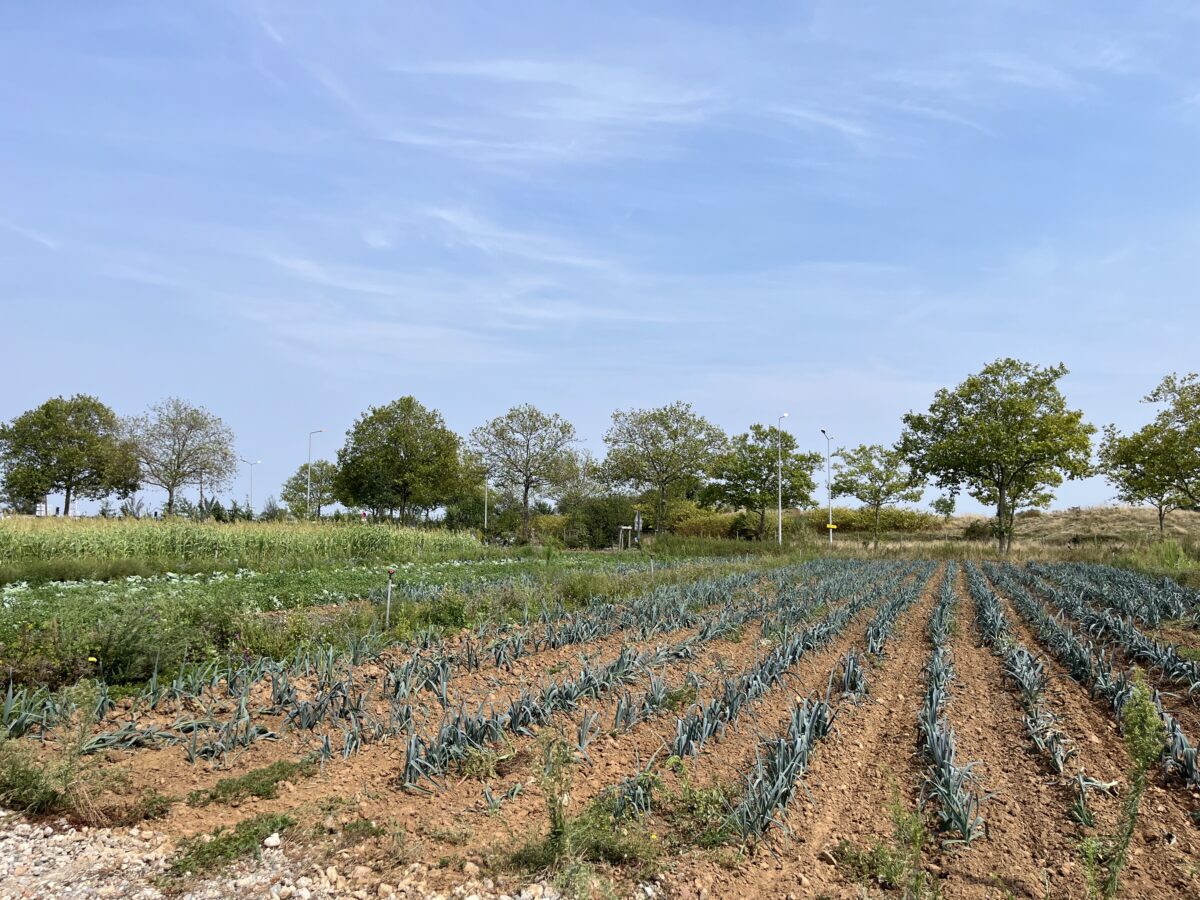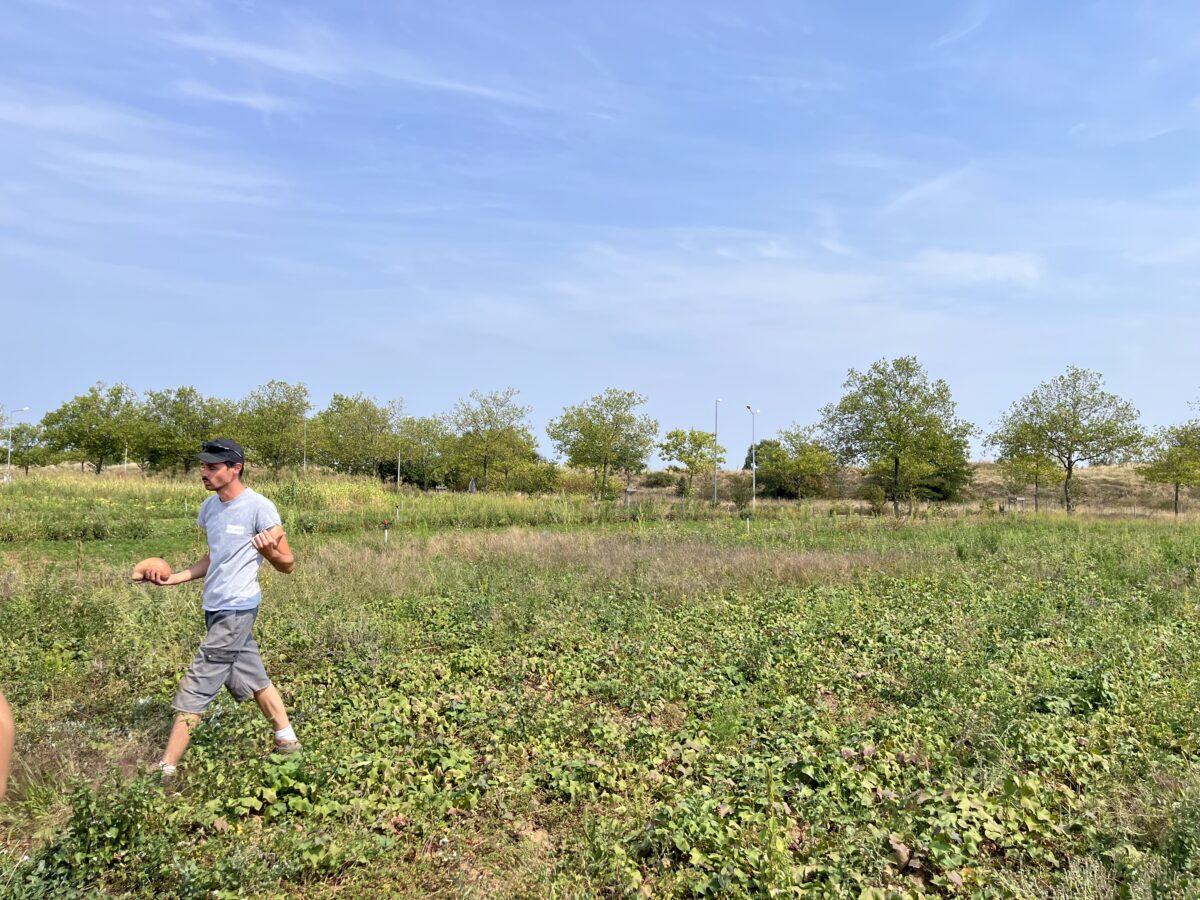A farm managed by the Lyon Metropolitan Area for greater autonomy and “food justice”


Funded by the community and the CNR (Compagnie Nationale du Rhône), the first metropolitan farm under agricultural management is being set up in Chassieu and is preparing for the start of the school year.
During the visit to the new urban farm, Bruno Bernard, president of the Métropole, was quick to mention the citizen mobilization against the Duplomb law to affirm that ecology and agriculture are subjects that interest the French. This allows him, among other things, to justify the ambitious agricultural policy - which is expected to amount to 10 million euros between 2021 and 2026 - of the Métropole de Lyon. In this context, the community announced the opening of the first farm under management on a metropolitan scale, affirming the “essential” role it must play in the current agricultural crisis.
Bruno Bernard, accompanied by Mathieu Stortz (Director General of the CNR) and Jérôme Camus (Vice-President of the Metropolis), presents the first metropolitan farm to journalists, while reassuring them that the work is not finished: “we have only been here for 9 months”.

The tour begins with a presentation of the vegetables already harvested since the opening: squash, onions, sweet potatoes; then continues in the machine room which allows the two salaried market gardeners to save “precious ” time. We then head towards the land, which is not yet all used - but the vice-president of the Metropolis reassures us: “in the long term, there will be no fallow land” , before adding that it is necessary to “optimize the land as much as possible”.
This is where we really see the ambition of the Metropolis because, if this project primarily pursues a production objective, it must also serve as a “showcase” for new, more ethical and sustainable agricultural practices. By proposing a “new agricultural model” , the Metropolis wants to show that it is possible to reconcile organic and environmentally friendly agriculture with good working conditions for market gardeners.
With this urban farm, the community intends to promote organic farming; but also practices derived from permaculture, using natural assets to save water, increase yields, fight pests or restore biodiversity.

Mewan Melguen, a farmer employed by the farm, explains to us, for example, his plan to plant around 1.5 km of flower strips to attract pollinators and naturally improve the yields of the next squash harvest.
Just as he tells us about his successes, he wants to share with us his latest experiment, which turned out to be a “semi-failure” : planting clover near the cabbages to retain moisture in the soil, enrich the soil, and avoid lengthy weeding. But the latter ultimately partially stifled production. A “semi-failure” because the lessons he learned from it will be useful to him in the future and may even “be useful to the market gardeners nearby.” In addition, the in-house configuration allows for more room for experimentation—even when they are not entirely conclusive—because it involves the Metropolis taking on the financial risks associated with the activity. Mewan affirms that this configuration is beneficial, since it guarantees him financial security, fewer working hours, and high-performance equipment.
Regarding the urban farm's nutritional mission, the Lyon Metropolitan Area intends to propose a truly ecological political project. This farm should enable the community to supply the canteens of 36 middle schools with organic and local products, producing between 60 and 80 tons of organic fruits and vegetables each year. The Metropolis ultimately aims to achieve 100% organic and 50% local products in collective catering, an ambitious goal that exceeds the expectations set by the EGalim law - a minimum of 20% organic products in public sector collective catering.
Finally, this place should, by 2027-28, provide an educational function: easily accessible thanks to the T5 tramway, it could accommodate middle school students to show them how a farm works.
Lyon Capitale





